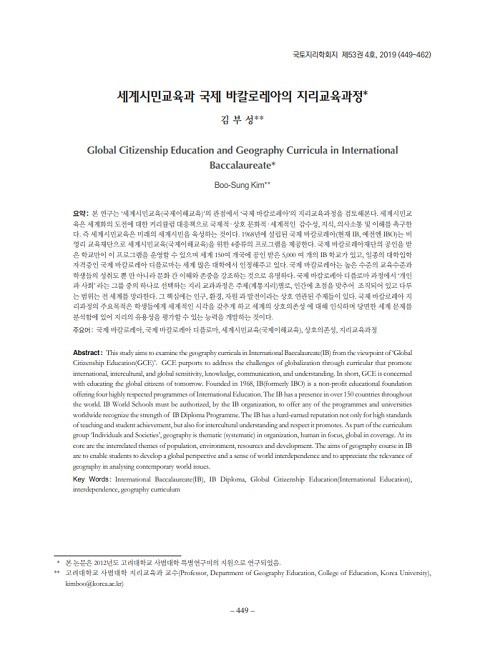
GCED Basic Search Form
Quick Search
当前位置
相关资源

This study aims to examine the geography curricula in International Baccalaureate(IB) from the viewpoint of ‘Global Citizenship Education(GCE)’. GCE purports to address the challenges of globalization through curricular that promote international, intercultural, and global sensitivity, knowledge, communication, and understanding. In short, GCE is concerned with educating the global citizens of tomorrow. Founded in 1968, IB(formerly IBO) is a non-profit educational foundation offering four highly respected programmes of International Education. The IB has a presence in over 150 countries throughout the world. IB World Schools must be authorized, by the IB organization, to offer any of the programmes and universities worldwide recognize the strength of IB Diploma Programme. The IB has a hard-earned reputation not only for high standards of teaching and student achievement, but also for intercultural understanding and respect it promotes. As part of the curriculum group ‘Individuals and Societies’, geography is thematic (systematic) in organization, human in focus, global in coverage. At its core are the interrelated themes of population, environment, resources and development. The aims of geography course in IB are to enable students to develop a global perspective and a sense of world interdependence and to appreciate the relevance of geography in analysing contemporary world issues.
